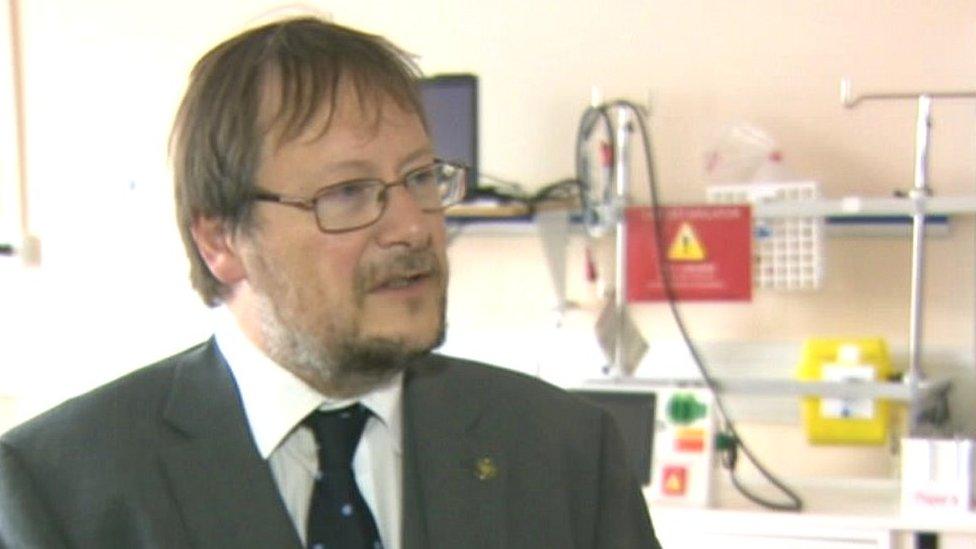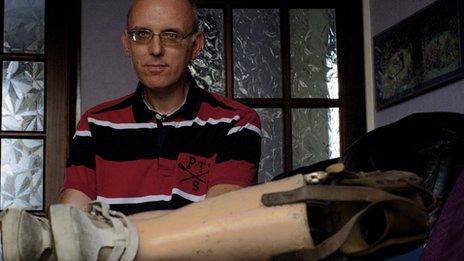Vaping health risk warning 'alarmist nonsense'
- Published

A doctor who likened the risks of vaping to the Thalidomide scandal has been accused of "alarmist nonsense".
Dr Phil Banfield, chairman of the British Medical Association's (BMA) Welsh council, said he wants to see proof of the safety of e-cigarettes.
He wants their use reviewed - pointing to the Thalidomide morning sickness drug that caused birth deformities.
An e-cigarettes scientific officer said he was unjustifiably using the topic to get an emotional response.
Their use has divided opinion in Wales and a move to ban e-cigarettes from some public places was rejected in the assembly in March.
Thalidomide was a drug launched by a German pharmaceutical company in 1957 to help pregnant women combat morning sickness.
But it was withdrawn from the UK in 1961, with 468 people classified as having been damaged by it and an estimated 20,000 babies worldwide born with deformities.
Dr Banfield said expectant mothers in the US did not use it as there were safety concerns and with 2.8 million people using e-cigarettes in the UK, he feels the same caution should now be exercised.

Dr Banfield told BBC Radio Wales' Eye on Wales programme: "I'm a bit loath to make a direct comparison but the most obvious one, because I'm in my fifties, is with Thalidomide.
"The reason why America did not get an issue with Thalidomide was because the person in charge of reviewing the drug there had safety concerns."
He said there were lots of drugs and treatments, such as morphine, that are used to combat issues in a supervised environment that we "don't take on to the streets".
"Using e-cigarettes to help you quit is very different to swapping them to use them as a social habit in the long-term," he added.
But Tom Pruen, of the Electronic Cigarette Industry Trade Association, dismissed the comments as "alarmist nonsense".
He said: "I think it's an entirely fallacious argument.
"Thalidomide was a drug that was intended for use in pregnancy that had never been investigated for its effects on developing foetuses which is a little different from saying 'here is a product that while not risk free, is definitely safer than continuing to smoke'."
'Caution'
He said he believes Dr Banfield chose Thalidomide to "elicit an emotional response that's quite simply not justified by the evidence".
While some organisations such as the Royal College of Physicians and Public Health England have endorsed the benefits of using e-cigarettes to quit smoking, others including the World Health Organisation and the BMA have taken a more cautious approach.
BMA Wales said Dr Banfield's comments "were not intended to make a direct comparison to e-cigarettes", stressing it was his "personal view".
A spokesman said: "The BMA's position is clear; we recognise the potential for e-cigarettes to reduce the harm associated with tobacco use, but while evidence on the long-term effects of e-cigarettes is still emerging we continue to advocate a cautionary approach to normalising e-cigarette use in front of children and young adults."
Listen to the the full story on BBC Radio Wales' Eye on Wales programme at 12:30 GMT on Sunday
- Published30 June 2016

- Published14 October 2013

- Published3 November 2011

- Published16 March 2016

- Published9 June 2015
